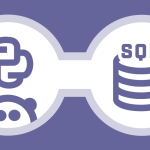
DevOps is one of the emerging technology trends currently. It’s becoming the talk at the moment. So what is it? DevOps comprises a blend of both development and operations.
DevOps ensure the streamlining of the development, release, and testing of software. The operations include a set of practices that automate and integrate the processes between software development and IT teams hence ensuring a smooth working environment.
DevOps Engineering teams can implement this shift of working from the cultural way of development to increase the speed and quality of software deployment. Implementing this agile way of working comes with greater benefits, tools, and lifecycle models and practices.
DevOps Benefits
1. Security – this is acquired by integrating active security checks and audits into the development lifecycle and workflows. DevSecOps is the integrated part of the development process.
2. Speed – the practice of smooth communication and collaboration between the development and operations teams helps shorten the development lifecycle. This in turn enables frequent code release in production hence increasing the speed of code deployment and testing.
3. Quality and Reliability – continuous integration and continuous delivery practices ensure changes are functional and safe, which improves the quality of a software product. Monitoring helps teams keep informed of performance in real-time.
4. Collaboration – communicating with other departmental members help developers come up with better products. Sharing ideas helps generate solutions to problems at a faster rate than it could be were to be done individually.
5. Quick bug fixing – developers can make changes appropriately and still maintain the code stability of software since they are familiar with the development process
DevOps Lifecycle
The DevOps lifecycle stages occur in an infinite loop as they relate to each other. The stages include;
- Plan
- Build
- Test
- Deploy
- Operate
- Monitor
- Continuous feedback
- Discover*
DevOps Tools
This includes the tools that are essential in every stage of development. They include Jira Software, Bitbucket, Opsgenie, etc. The toolchain is categorized into two namely;
- all-in-one toolchain:- uses one complete solution that doesn’t allow other tools to play a part.
- open toolchain:- allows for customization with different tools.
DevOps Best Practices
They include;
- Continuous Integration
- Continuous Delivery
- Infrastructure as Code
- Microservices
- Monitoring and Logging
- Communication and Collaboration
DevOps Engineer roles
Some of the roles include;
- DevOps Architect
- DevOps security manager
- DevOps release manager
- DevOps test engineer
Ready to begin your career in DevOps ?

Start learning with our 8-week practical and part-time DevOps Engineering Course. Apply Now –> https://bit.ly/3zfh6RT | Classes start in November

 Kenya
Kenya  International
International 






